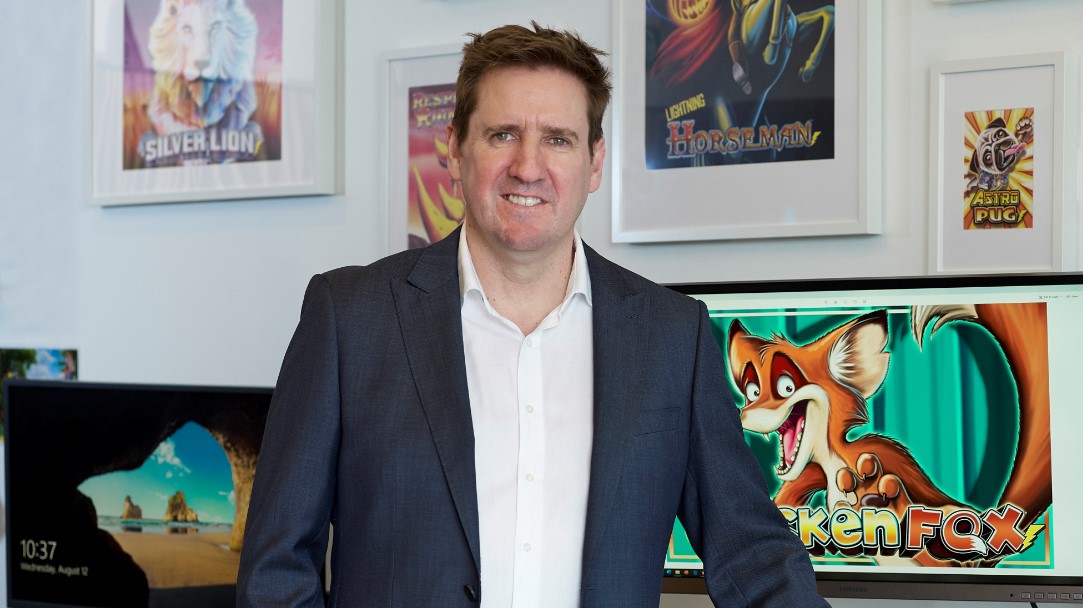With mobile gaming showing no signs of slowing down, suppliers are starting to ensure that titles developed are optimised for mobile. The question is are we seeing the death of desktop games as a result? SlotBeats asked three suppliers about the future of desktops games.
Will the industry see suppliers stop considering the development of desktop titles and narrow-in on creating slots with a sole mobile focus or does desktop still play a role on the market?

David Little, Lightning Box: Mobile gaming now accounts for around 75 per cent of gameplay. Obviously that figure fluctuates depending on the market. But it’s fair to say that it overtook desktop in most countries some time ago. As a result, people have been writing desktop’s obituary for some time.
But as Mark Twain would say, news of its death may be exaggerated. We’ve found many players try out new games and understand how they work on desktop. If they like them, they often then move to mobile and ‘snack’ on them. Due to factors like download size, differences in the central processing unit and resultant battery drain, the experience differs with mobile and limits are placed on what is possible.
You have to make the transition from desktop to mobile as seamless as possible. The experience should be as similar as is possible on the two different devices. At Lightning Box, we always build the best game we can first then pear it back to suit the device it’s played on, whether that be desktop, the latest iPhone or a 2015 Android. We’ll do that for as long as there is demand. We don’t tell people what they should be playing on – we offer them choices.

Andy Sekula, Kalamba Games: It’s true to say that ‘mobile first’ has become a mantra over the last few years for the gaming industry, and why not? As an industry we tend to place a lot of focus on fairly mature markets with a wealthy customer base, high customer value and markets containing a lot of early adopters. Coupled with the introduction of folding and rolling screens on mobiles, and of course tablets, we can start to see that even the benefits of having more screen real estate have become mitigated quite substantially by new technology.
Therefore, at first glance the equation makes sense.
However, as we seek to optimise market share across many territories, it’s clear that substantial segments of some markets still prefer to play on desktop. This could be due to a number of factors such as Wi-Fi availability, or the cost and availability of mobile data and up-to-date smartphones.
Particularly if we look at the impact of COVID-19, people have been less mobile and often working from home and therefore playing on the devices they’re using most. One of those would naturally be the humble laptop or desktop. Once things open up again, we could expect this will revert fairly quickly.
However, if there’s a permanent shift to more home working, it might ‘snap back’ less readily. That, in addition to slower adoption and genuine preference in some markets will surely make desktop or ‘home based’ gaming at least somewhat relevant for years to come.

Petra Maria Poola, OneTouch: Recent years demonstrate that more and more players are placing bets on a mobile phone, with 70 per cent of our own turnover, and around 60 per cent of gambling revenues overall, now coming from such devices.
With lockdown restrictions likely to ease in the second half of this year, we’ll return to a world where entertainment must be delivered on the move. As one of the first providers to design table games that are fully customised for portrait mode, we understand that our industry’s future lies with mobile betting.
Desktop games still have their place, particularly at a time when individuals across the globe have been forced to stay at home by COVID-related restrictions. Overall, however, the direction of travel points clearly towards mobile.
With smartphone adoption rates increasing rapidly, and broadband access spreading across the globe, that trend is unlikely to change. In particular, numerous growth markets skipped the desktop phase of their technological transformation and jumped straight to mobile.
Throw in the emergence of a new generation of tech-savvy gamblers, who will prove key to our industry’s customer acquisition prospects, and it’s clear that the future belongs to mobile-optimised content.

















